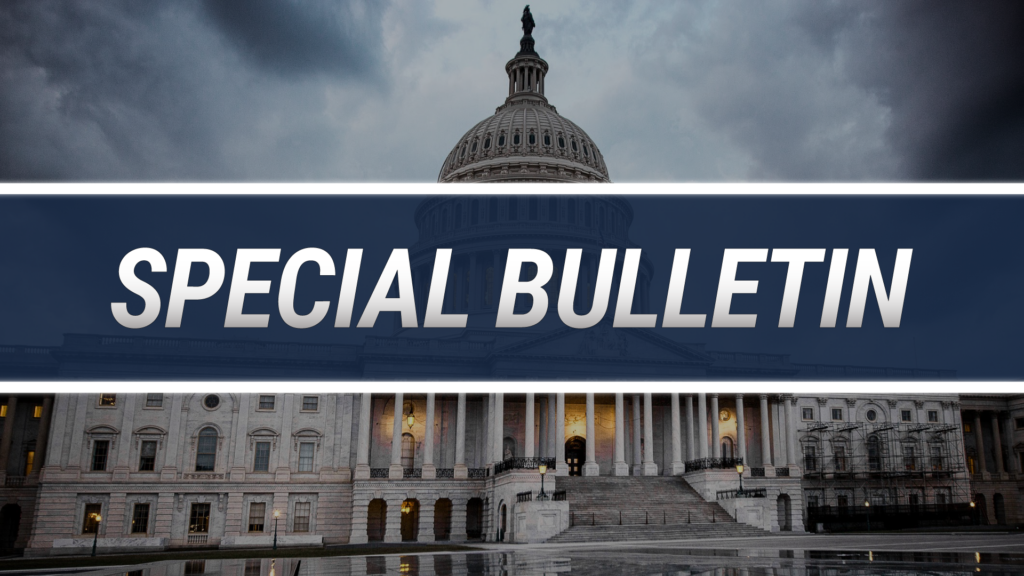
CRUSH, A DME Moratorium, OIG Audits Resume, and the PEPPER
Picture this: You are driving through an area you don’t know well. It is a cold day. You stop to get gas. You fill the

UnitedHealth Group and MEDPAC both reported on the state of emergency departments last week.
Last week, emergency departments (EDs) got some serious national attention.
First, UnitedHealth Group released a study examining costs associated with freestanding emergency departments (FSEDs), and second, there was a call for the Centers for Medicare & Medicaid Services (CMS) to develop formal code selection guidelines for emergency services.
Both news items were reported by Ronald Hirsch, MD during his segment on Monitor Mondays this past Monday.
Emergency departments – both freestanding and hospital-based – treat non-emergent conditions for millions of patients each year at substantially higher prices than physician offices or urgent care centers, according to the report released last week by UnitedHealth Group, “Freestanding Emergency Departments: Treating Common Conditions at Emergency Prices.”
Hirsch, quoting from the report, told audience members that less than 25 percent of such facilities accept incoming ambulances, and they often do not accept Medicare or Medicaid, at least in Texas, where there is a large number of FSEDs. Hirsch said such facilities also tend to be located in metropolitan areas with higher median incomes that are already well-served by hospitals, urgent care centers, and physician offices.
“Their data also indicated that while 8 percent of visits to hospital-based EDs are classified as true emergencies, requiring the care only available in an ED, only 2.3 percent of visits to FSEDs were true emergencies,” Hirsch said. “They (UnitedHealth Group) also report that the costs of these EDs is significantly higher than even hospital-based EDs, with the average cost for a patient with strep throat to be over $2,700, compared with $1,800 in a hospital-based ED and $130 in a doctor’s office.”
In Texas, the average cost of treating common conditions at an FSED ($3,217) is 22 times than that of a physician office ($146) and 19 times more than that of an urgent care center ($167).
As reported here on RACmonitor, major health plans, including UnitedHealth Group and others, have a vested interest in reducing utilization of these FSEDs because of their cost. While the underlying motivation for this study is unknown, it certainly is interesting.
The other ED issue that came up last week has been a topic covered on prior Monitor Mondays broadcasts: the coding and payment of the emergency department facility fee.
“You may recall that the coding for these visits has no official guidelines from Medicare, so it is left to hospitals to develop their own,” Hirsch said. “And apparently, there has been an increase in the number of visits that are coded with higher-level codes, which led the Medicare Payment Advisory Commission (MEDPAC) to discuss this trend at their meeting last week and to recommend that CMS finally develop formal code selection guidelines.”
“Now, of course, nothing happens quickly, but by 2022, we may actually have a formal guideline,” Hirsch added. “But until then, it remains confusing and subject to interpretation.”


Picture this: You are driving through an area you don’t know well. It is a cold day. You stop to get gas. You fill the

Federal health officials have announced the launch of the Comprehensive Regulations to Uncover Suspicious Healthcare (CRUSH) initiative. The announcement was framed as a decisive step
Please log in to your account to comment on this article.

Sepsis sequencing continues to challenge even experienced coding and CDI professionals, with evolving guidelines, documentation gaps, and payer scrutiny driving denials and data inconsistencies. In this webcast, Payal Sinha, MBA, RHIA, CCDS, CDIP, CCS, CCS-P, CCDS-O, CRC, CRCR, provides clear guideline-based strategies to accurately code sepsis, severe sepsis, and septic shock, assign POA indicators, clarify the relationship between infection and organ dysfunction, and align documentation across teams. Attendees will gain practical tools to strengthen audit defensibility, improve first-pass accuracy, support appeal success, reduce denials, and ensure accurate quality reporting, empowering organizations to achieve consistent, compliant sepsis coding outcomes.

Expert presenters Kathy Pride, RHIT, CPC, CCS-P, CPMA, and Brandi Russell, RHIA, CCS, COC, CPMA, break down complex fracture care coding rules, walk through correct modifier application (-25, -57, 54, 55), and clarify sequencing for initial and subsequent encounters. Attendees will gain the practical knowledge needed to submit clean claims, ensure compliance, and stay one step ahead of payer audits in 2026.

Accurately determining the principal diagnosis is critical for compliant billing, appropriate reimbursement, and valid quality reporting — yet it remains one of the most subjective and error-prone areas in inpatient coding. In this expert-led session, Cheryl Ericson, RN, MS, CCDS, CDIP, demystifies the complexities of principal diagnosis assignment, bridging the gap between coding rules and clinical reality. Learn how to strengthen your organization’s coding accuracy, reduce denials, and ensure your documentation supports true medical necessity.

Denials continue to delay reimbursement, increase administrative burden, and threaten financial stability across healthcare organizations. This essential webcast tackles the root causes—rising payer scrutiny, fragmented workflows, inconsistent documentation, and underused analytics—and offers proven, data-driven strategies to prevent and overturn denials. Attendees will gain practical tools to strengthen documentation and coding accuracy, engage clinicians effectively, and leverage predictive analytics and AI to identify risks before they impact revenue. Through real-world case examples and actionable guidance, this session empowers coding, CDI, and revenue cycle professionals to shift from reactive appeals to proactive denial prevention and revenue protection.

In this timely session, Stacey Shillito, CDIP, CPMA, CCS, CCS-P, CPEDC, COPC, breaks down the complexities of Medical Decision Making (MDM) documentation so providers can confidently capture the true complexity of their care. Attendees will learn practical, efficient strategies to ensure documentation aligns with current E/M guidelines, supports accurate coding, and reduces audit risk, all without adding to charting time.

Join Ronald Hirsch, MD, FACP, CHCQM for The PEPPER Returns – Risk and Opportunity at Your Fingertips, a practical webcast that demystifies the PEPPER and shows you how to turn complex claims data into actionable insights. Dr. Hirsch will explain how to interpret key measures, identify compliance risks, uncover missed revenue opportunities, and understand new updates in the PEPPER, all to help your organization stay ahead of audits and use this powerful data proactively.

Stay ahead of the 2026-2027 audit surge with “Top 10 Audit Targets for 2026-2027 for Hospitals & Physicians: Protect Your Revenue,” a high-impact webcast led by Michael Calahan, PA, MBA. This concise session gives hospitals and physicians clear insight into the most likely federal audit targets, such as E/M services, split/shared and critical care, observation and admissions, device credits, and Two-Midnight Rule changes, and shows how to tighten documentation, coding, and internal processes to reduce denials, recoupments, and penalties. Attendees walk away with practical best practices to protect revenue, strengthen compliance, and better prepare their teams for inevitable audits.

As AI reshapes healthcare compliance, the risk of biased outputs and opaque decision-making grows. This webcast, led by Frank Cohen, delivers a practical Four-Pillar Governance Framework—Transparency, Accountability, Fairness, and Explainability—to help you govern AI-driven claim auditing with confidence. Learn how to identify and mitigate bias, implement robust human oversight, and document defensible AI review processes that regulators and auditors will accept. Discover concrete remedies, from rotation protocols to uncertainty scoring, and actionable steps to evaluate vendors before contracts are signed. In a regulatory landscape that moves faster than ever, gain the tools to stay compliant, defend your processes, and reduce liability while maintaining operational effectiveness.
Happy National Doctor’s Day! Learn how to get a complimentary webcast on ‘Decoding Social Admissions’ as a token of our heartfelt appreciation! Click here to learn more →
CYBER WEEK IS HERE! Don’t miss your chance to get 20% off now until Dec. 1 with code CYBER25
CYBER WEEK IS HERE! Don’t miss your chance to get 20% off now until Dec. 2 with code CYBER24